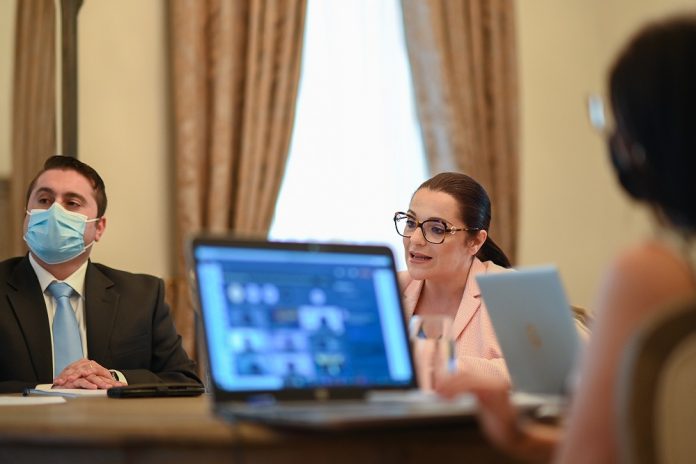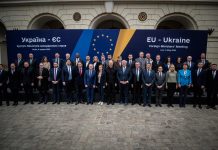Last week, a delegation representing Malta, headed by Minister for Inclusion and Social Wellbeing Julia Farrugia Portelli, participated in the 14th Conference of States Parties (CoSP) to the United Nations Convention on the Rights of Persons with Disabilities (UN CRPD), organised by the UN Department of Economic and Social Affairs (DESA). Delegates were drawn from Malta’s Permanent Mission to the UN in New York, the Ministry for Inclusion and Social Wellbeing, Aġenzija Sapport, the Social Care Standards Authority (SCSA), and the Commission for the Rights of Persons with Disability (CRPD).
Delegates participated in different thematic round tables and side-events, while Minister Farrugia Portelli also gave a national statement on behalf of the Government of Malta, during the general debate. Through it, she stressed the importance of solid foundations for being able to build back better – the theme chosen for this year’s CoSP. Minister Farrugia Portelli also discussed Malta’s efforts in 2021 to reform base legislation and adopt relevant strategies, while creating or strengthening necessary structures within the Maltese disability sector. This aims to ensure that no one is left behind, in the spirit of the UN’s Sustainable Development Goals (SDGs), while having disabled persons at the centre of all processes, in line with the UN CRPD’s mantra of “Nothing About Us, Without Us”.
Furthermore, on Thursday 17th June, the Government of Malta, through the Ministry for Inclusion and Social Wellbeing, continued its annual tradition of organising a side-event at the CoSP. The theme chosen for this year was “Freedom to Live: Malta’s Path to 2030”. Co-sponsored with Malta by UN DESA, and by the International Disability Alliance (IDA), this event focused on consulting activists and experts participating at the conference, in respect of “Freedom to Live”, Malta’s 2021-2030 National Strategy on the Rights of Disabled Persons. Given that this document is currently out for public consultation, Malta took the opportunity of participating in this conference, to be able to solicit feedback and discuss best practices regarding the way forward, while also showcasing its efforts so far.
Chaired by Minister Farrugia Portelli, the side-event saw interventions by Ambassador Vanessa Frazier, Permanent Representative of Malta to the UN in New York, and by Maltese officials representing both government and regulator, alongside panel contributions by representatives of key entities at international level – Ms Daniela Bas, Director of UN DESA’s Department for Inclusive Social Development (DISD), Prof. Gerard Quinn, the UN Special Rapporteur on the Rights of Persons with Disabilities, and Ms Villaney Remengesau, Board Member of IDA.
Ms. Bas described Malta as a pioneer of disability inclusion, while emphasising the need for tools such as legislation and national disability strategies, as means for working towards abolishing discrimination and eliminating barriers. She also referenced the UN’s SDGs, and the importance of using these tools for implementing measures and reaching milestones set out in key SDG goals, such as in the areas of health and education.
Prof. Quinn also commented positively on Malta’s decision to link its strategy actions with the SDGs, describing this as a best practice example. He also referenced specific fields of action which a national strategy should aim to address particularly, and noted Malta’s focus on mandating further efforts towards ensuring the right to live independently within the community for all, harnessing the power of consultation and research, with disabled persons at the centre, and the value of regional and international cooperation efforts.
Ms. Remengesau highlighted the challenges of ensuring participation of organisations of persons with disabilities in all relevant processes, also drawing on her experiences of fighting to ensure implementation of the UN CRPD and the SDGs in Palau, another small island state, while doing so within a regional and international context.
Photos: MISW










